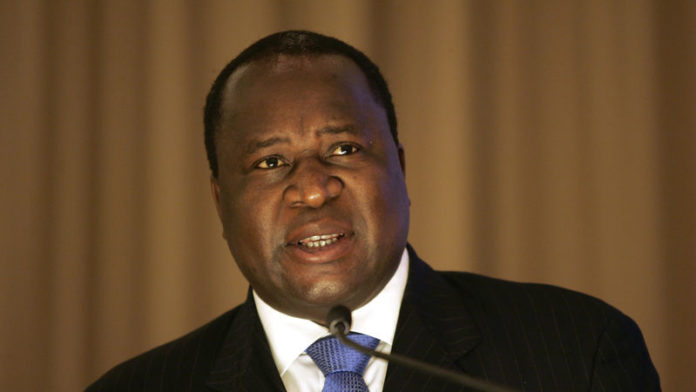
A TAXPAYER funded R23bn annual subsidy to Eskom between now and 2021 may have the consequence of the government-owned utility withdrawing an application to hike electricity tariffs 15% a year for the next three years.
This was the Minerals Council’s key takeaway from finance minister Tito Mboweni’s 2019 national budget, delivered in Parliament today to plaudits among the country’s business community, although unions baulked at its proposals.
Eskom earlier this month completed presentations to the National Energy Regulator of South Africa aimed at having its tariff increase application approved. The view of the Minerals Council is that the tariff, if implemented, could see as many as 50,000 jobs lost from the resources sector – a repeat of the jobs carnage suffered the last time Eskom lifted rates as much.
Mboweni said today the government would subsidise Eskom to the tune of R69bn over three years, but added that the days of endless taxpayer handouts was over. He also said the subsidy would carry conditions, one of which was the appointment of a new position – to be deployed among all state-owned enterprises – known as a chief reorganisation officer who would be responsible for the allocation of the funds.
Said Roger Baxter, CEO of the Minerals Council in a prepared statement: “The Minerals Council trusts … a consequence of this taxpayer-funded subsidy will see Eskom withdrawing its demand to the National Electricity Regulator of SA for the 15.5% annual tariff increase”.
It added that the structure of the subsidy – described as “the centerpiece” announcement regarding Eskom – was a measure that avoided technical complications that could have been posed from the takeover of a large chunk of Eskom’s debt. Estimates are that Eskom owes R419bn, a portion of which it can’t service.
Baxter warned, however, that the newly appointed chief reorganisation officer may create an extra layer of management that could interfere existing management structures within Eskom.
The reduction in the public sector wage bill was also acknowledged by the council as well as Mboweni’s pledge to focus the budget increasingly towards investment and away from current spending.
It wasn’t a budget that pleased all parties, however.
“The South African Federation of Trade Unions condemns the budget delivered by Tito Mboweni as a savage attack on the workers and poor,” the union said in a statement. “Instead it was an attempt to appease international big business and the wealthiest South Africans,” it said.
Mboweni kicked off his budget speech drawing an extended analogy to the need for South Africa to rid itself of “pests and rot” in order to reap the harvest of the seeds that were being sowed by President Cyril Ramaphosa.










